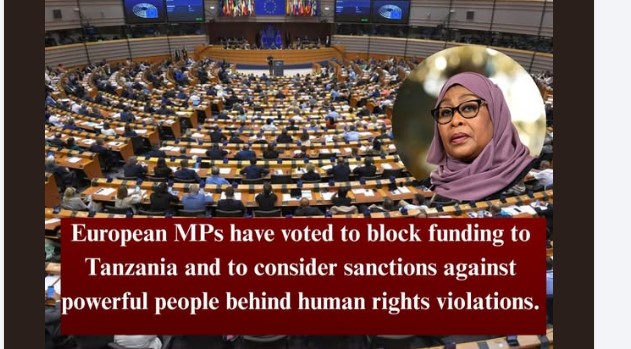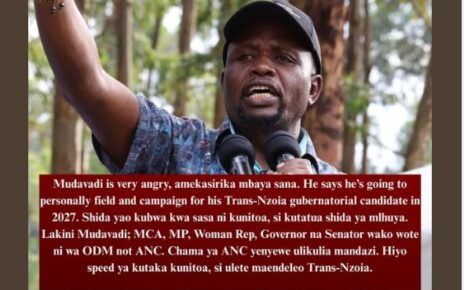Tanzania is facing its most serious international setback in recent years after the European Parliament overwhelmingly voted to block funding to the country and consider sanctions against individuals believed to be responsible for widespread human rights violations. The move delivers a significant diplomatic blow to President Samia Suluhu Hassan’s government and signals escalating global concern over the country’s political trajectory following the disputed October 2025 elections.
The resolution, passed with 539 votes in favor, expresses deep alarm over allegations of killings, enforced disappearances, torture, and politically motivated arrests targeting opposition supporters, journalists, and activists. Central to the controversy is the arrest of prominent opposition figure Tundu Lissu, who has been detained on treason charges that international observers describe as politically engineered to silence dissent.
In its strongly worded statement, the European Parliament condemned the Tanzanian authorities for what it called a systematic assault on democratic freedoms. The resolution demands the immediate and unconditional release of political prisoners, including Lissu, and urges the government to allow independent investigations into all reported abuses. MEPs argued that the post-election environment reflects an alarming decline in the protection of civil liberties and the rule of law.
One of the most consequential decisions contained in the resolution is the suspension of direct financial support to the Tanzanian government. The European Union has instructed that aid previously routed through state institutions be redirected to civil society groups, human-rights organizations, independent media, and community-based initiatives. This shift marks a significant loss of trust in the Tanzanian government’s commitment to governance standards, transparency, and accountability.
Political analysts warn that the funding freeze could strain Tanzania’s development programs, many of which rely heavily on EU support. Projects in health, education, local governance, and infrastructure may be disrupted unless alternative financial channels are established. For President Samia Suluhu’s administration, the suspension of funding is both a diplomatic embarrassment and a practical challenge that could affect service delivery and foreign relations.
The European Parliament also urged the EU Council to consider targeted sanctions against individuals deemed responsible for orchestrating or enabling human rights violations. Such measures could include travel bans, asset freezes, and restrictions on international transactions—steps that would significantly pressure high-ranking officials implicated in abuses.
Reactions in East Africa have been sharp, with human-rights organizations welcoming the EU’s stance as a necessary pushback against authoritarian tendencies. Meanwhile, Tanzanian authorities have come under intense scrutiny, with growing calls for transparency, political tolerance, and electoral accountability.
The development represents a defining moment for Tanzania’s political landscape. As the international community intensifies its pressure, the Suluhu administration faces a difficult choice: reform to restore global confidence or continue on a path that could lead to further isolation. Either way, the European Parliament’s decision has placed Tanzania at a critical crossroads, with long-term implications for its democracy, governance, and regional standing.



